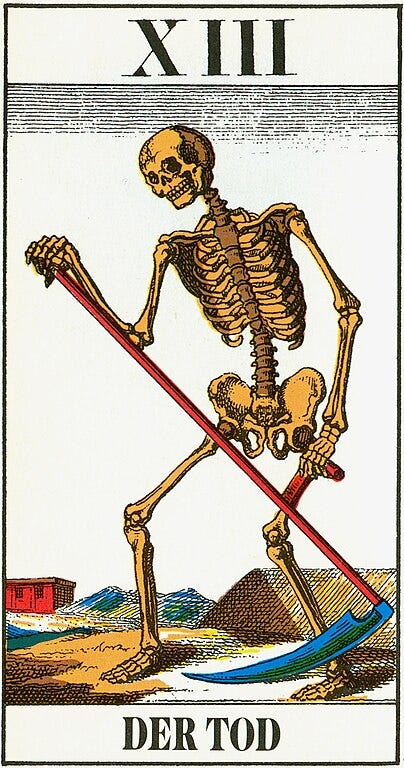Three Nine Dispatch #56
Chipping away.
I added some decent chunks to Sand & Stars and Steam Thieves this week. Sand & Stars is feeling very close to the finish line and is pretty playable right now. That’s exciting. The rules are pretty much there. It’s mostly needing flavor (spells, relics, etc.) and some maps to play. We’ll get there, though!
Project Run down
Sand & Stars
(Desert survival x Cairn, Ashcan here [link])
Added some slightly modified material from Cairn. I also reorganized my Deprivation & Fatigue section. I removed a condition around spell casting, which said that it’s dangerous to do that when ‘deprived’. Being ‘deprived’ is a condition in Cairn and many of its offshoots game. But I just realized that, in developing out the Fatigue system, I’ve negated the need for a ‘deprived’ condition.
I changed the name of hirelings to retainers, too. That just feels more on-theme.
I’ve also set an intention for next week’s update; making cool relics.
…
Retainers
PCs can hire retainers to aid them in their expeditions. To create a retainer, roll 3d6 for each ability score, then give them 1d6 HP and a simple weapon (d6), then roll on the Character Creation tables to further flesh them out. Retainers cost between 1-3gp per day, or a share of whatever treasure the party obtains.
Spellbooks & Scrolls
Spellbooks contain a single spell and take up one slot. They cannot be transcribed or created; instead they are recovered from places like tombs, dungeons, and ruins.
Spellbooks sometimes display unusual properties or limitations, such as producing a foul or unearthly smell when opened, possessing an innate intelligence, or being legible only when held in moonlight.
Spellbooks will attract the attention of those who seek the arcane power within, and it is considered dangerous to display them openly.
Scrolls are similar to Spellbooks, however:
They do not take up an inventory slot.
They do not cause fatigue.
They disappear after one use.
Casting Spells
Anyone can cast a spell by holding a Spellbook in both hands and reading its contents aloud. They must then add a Fatigue to their inventory, occupying one slot.
Given time and safety, PCs can enhance a spell’s impact (e.g., affecting multiple targets, increasing its power, etc.) without any additional cost.
If the PC is in danger, the Player Guide may require a PC to make a WIL save to avoid any ill-effects from casting the spell. Consequences of failure are on par with the intended effect, and may result in added Fatigue, the destruction of the Spellbook, injury, and even death.
Relics
Relics are items imbued with a magical spell or power. They do not cause Fatigue. Relics usually have a limited use, as well as a recharge condition. A few examples:
Steam Thieves
(Steampunk x Forged in the Dark, Ashcan here [link])
Copied the Death section from the SRD with a minor tweak.
…
Death
There are a couple ways for Steam Thieves to die:
If they suffer level 4 fatal harm and they don’t resist it, they die. Sometimes this is a choice a player wants to make, because they feel like it wouldn’t make sense for the character to survive or it seems right for their character to die here.
If they need to record harm at level 3 and it’s already filled, they suffer a catastrophic consequence, which might mean sudden death (depending on the circumstances).
When your character dies, you can create a new Steam Thief to play.
Goodnight Maus
(Mausritter adventure site inspired by Goodnight Moon)
…
No progress.
Trinakum
(Original design - 3d6 dice pool/grid-based/combat simulator with Iron Age Celtic/Gaulish flavour, Ashcan here [link])
…
No progress.
Gatekeepers
(Mythos inspired Breathless game for the Beyond the Gates Jam, Ashcan here [link])
…
No progress.
WAKE
(Completed Breathless game inspired by Control, Inception and The Matrix, Game Page here [link])
…
No progress.
GIANT PINBALL
(Dungeon Crawl Classic Funnel set inside a pinball machine)
…
No progress.
See you next week.



